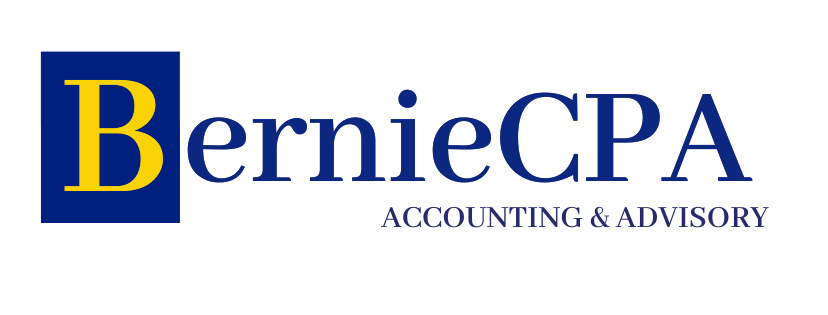Money in Your Pocket: Tips and Tricks for Paying Yourself as an LLC
As a business owner of a Limited Liability Company (LLC), it is important to understand the basics of paying yourself. Unlike a sole proprietorship or partnership, an LLC is a separate legal entity from its owners, which means that the owners are not personally liable for the company’s debts and obligations. This separation also extends to the finances of the business and the owners’ personal finances. When it comes to paying yourself as an LLC owner, there are several factors to consider, including the legal and tax implications, as well as the best practices for managing your personal income.
One of the key concepts to understand when paying yourself as an LLC owner is the idea of “owner’s draw” or “owner’s distribution.” This refers to the money that you, as the owner, take out of the business for your personal use. Unlike a traditional employee salary, owner’s draw is not subject to payroll taxes, and it is not considered a business expense. Instead, it is treated as a distribution of profits to the owners. It is important to keep in mind that taking too much money out of the business in the form of owner’s draw can negatively impact the company’s financial health, so it is crucial to strike a balance between paying yourself and reinvesting in the business.
Determining the Right Salary for Yourself as an LLC Owner
When it comes to determining the right salary for yourself as an LLC owner, there are several factors to consider. Unlike a traditional employee, as an owner, you have the flexibility to set your own salary within certain legal and tax constraints. It is important to strike a balance between paying yourself a fair and reasonable salary while also ensuring that the business has enough cash flow to operate and grow. One approach to determining your salary is to consider your role and responsibilities within the company, as well as the industry standards for similar positions. You should also take into account the financial health of the business and its ability to sustain your salary.
Another factor to consider when determining your salary as an LLC owner is the tax implications. Unlike traditional employees who have income taxes withheld from their paychecks, as an owner, you are responsible for paying estimated taxes on your income throughout the year. This means that you will need to carefully plan and budget for your tax obligations, especially if your income fluctuates from month to month. It is also important to consult with a tax professional to ensure that you are taking advantage of any available tax deductions and credits as an LLC owner. By carefully considering these factors, you can determine a salary that is fair to you as an owner while also supporting the financial health of your business.
Managing Your Personal Finances as an LLC Owner
As an LLC owner, it is important to effectively manage your personal finances in conjunction with your business finances. Since an LLC is a separate legal entity from its owners, it is crucial to keep your personal and business finances separate in order to maintain the liability protection that the LLC provides. This means opening separate bank accounts for your personal and business finances, as well as maintaining clear and accurate records of all financial transactions. By keeping your personal and business finances separate, you can ensure that your personal assets are protected in the event of any legal or financial issues that may arise within the business.
In addition to keeping your finances separate, it is also important to create a budget and financial plan for your personal income as an LLC owner. Since your income may fluctuate from month to month or year to year, it is important to carefully manage your cash flow and expenses in order to maintain financial stability. This may involve setting aside a portion of your income for taxes, retirement savings, and emergency funds. By creating a solid financial plan for yourself as an LLC owner, you can ensure that you are able to meet your personal financial goals while also supporting the growth and success of your business.
Tax Implications of Paying Yourself as an LLC
When it comes to paying yourself as an LLC owner, there are several tax implications to consider. Unlike traditional employees who have income taxes withheld from their paychecks, as an owner, you are responsible for paying estimated taxes on your income throughout the year. This means that you will need to carefully plan and budget for your tax obligations, especially if your income fluctuates from month to month. It is also important to consult with a tax professional to ensure that you are taking advantage of any available tax deductions and credits as an LLC owner.
Another important tax consideration when paying yourself as an LLC owner is the self-employment tax. Since LLC owners are considered self-employed individuals, they are responsible for paying self-employment taxes on their income. This tax includes both the employer and employee portions of Social Security and Medicare taxes, which can add up to a significant amount. It is important to factor in these additional taxes when determining your salary as an LLC owner in order to avoid any surprises come tax time.
Setting Up a Payroll System for Yourself as an LLC Owner
As an LLC owner, setting up a payroll system for yourself can help streamline the process of paying yourself and ensure that you are in compliance with all legal and tax requirements. One option for paying yourself as an LLC owner is to set up regular payroll payments through a formal payroll system. This can help ensure that you are paying yourself a consistent salary on a regular basis, which can be helpful for budgeting and financial planning purposes. Additionally, using a payroll system can help ensure that you are properly withholding and remitting any required payroll taxes on your income.
Another option for paying yourself as an LLC owner is to take periodic owner’s draws or distributions from the business without using a formal payroll system. While this approach may offer more flexibility, it is important to carefully track and document any owner’s draws in order to maintain accurate financial records and ensure compliance with tax regulations. Regardless of which method you choose, it is important to consult with a professional accountant or payroll service provider to ensure that you are following all legal and tax requirements when paying yourself as an LLC owner.
Strategies for Maximizing Your Personal Income as an LLC Owner
As an LLC owner, there are several strategies that you can use to maximize your personal income while also supporting the financial health of your business. One approach is to focus on growing and expanding your business in order to increase its profitability, which can in turn lead to higher profits for you as an owner. This may involve investing in marketing and sales efforts, expanding into new markets or product lines, or improving operational efficiencies in order to boost the bottom line.
Another strategy for maximizing your personal income as an LLC owner is to carefully manage your expenses in order to increase your profitability. This may involve negotiating better terms with suppliers, reducing unnecessary overhead costs, or finding ways to increase productivity and efficiency within the business. By carefully managing your expenses, you can increase the amount of profits available for distribution to the owners, including yourself.
Seeking Professional Advice for Paying Yourself as an LLC
Given the complex legal and tax implications of paying yourself as an LLC owner, it is important to seek professional advice from qualified professionals such as accountants or financial advisors. These professionals can provide valuable guidance on how to structure your salary and distributions in order to maximize tax benefits while also supporting the financial health of your business. They can also help you navigate any legal or regulatory requirements related to paying yourself as an LLC owner, ensuring that you remain in compliance with all applicable laws and regulations.
In addition to seeking professional advice from accountants or financial advisors, it may also be beneficial to consult with legal professionals who specialize in business law and taxation. These professionals can provide valuable insights into the legal implications of paying yourself as an LLC owner, helping you navigate any potential legal issues or liabilities that may arise. By seeking professional advice from qualified experts, you can ensure that you are making informed decisions about how to pay yourself as an LLC owner while also protecting the financial health of your business.
In conclusion, paying yourself as an LLC owner involves careful consideration of legal, tax, and financial factors in order to strike a balance between supporting your personal income and maintaining the financial health of your business. By understanding the basics of paying yourself as an LLC owner, determining the right salary for yourself, managing your personal finances effectively, considering the tax implications, setting up a payroll system, maximizing your personal income through strategic business decisions, and seeking professional advice when needed, you can ensure that you are making informed decisions about how to pay yourself while also supporting the success of your business.


